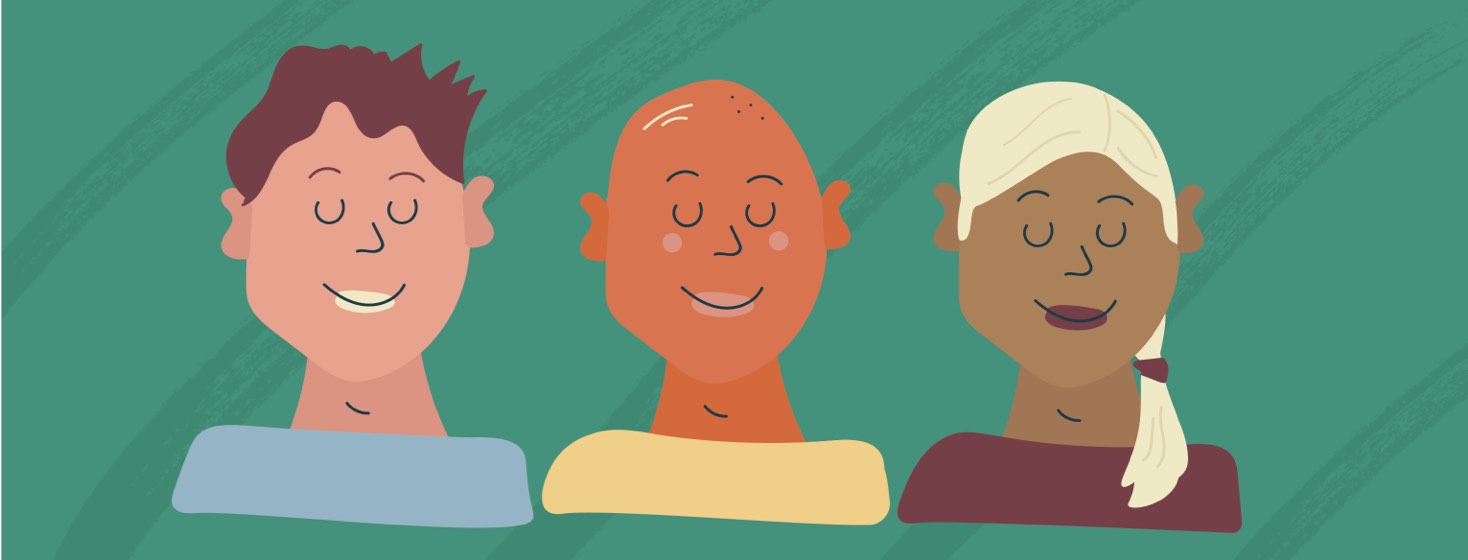Lung Cancer Treatments and Hair Changes
Many people, myself included, consider hair to be a big part of their identity. For this reason, one of the first questions people have when they are put on a lung cancer treatment often concerns whether or not they will lose their hair. “Losing your hair can cause more than a change in your physical appearance. It can be an emotional challenge that affects your self-image and quality of life.”1
Cancer side effects vary
Given improvements in current treatments for lung cancer, patients in therapy often do not lose their hair, however. Even certain chemotherapies now prescribed for people with lung cancer do not necessarily lead to hair loss. Instead, other changes sometimes take place, such as thinning of hair, changes in texture or color, or even altered growth rates. These types of changes aren’t often discussed and frequently take patients by surprise.
My hair changes over the past 8 years
Personally, I have had a whole variety of hair changes in my eight-plus years of targeted therapy treatments. For the first three years after my diagnosis, I was on a targeted therapy that paradoxically led to increased hair growth for me. I developed very thick and long eyelashes and eyebrows, and the hair on my head became fuller than ever. The extra hair that grew seemed to be straighter than my normally curly hair and also darker (fewer grey hairs).
While this may sound great, hair grew everywhere — use your imagination! And the increased hair growth on my eyelashes and eyebrows was often accompanied by painful pimples at the base of the hair follicles that required treatment with topical and oral antibiotics.
From thick to thinning hair
When I switched to a different targeted therapy after three years, my hair changed again. It thinned everywhere, especially in the front of my scalp above my forehead. I wear bangs so that this is less noticeable, but I am quite self-conscious of how this looks when the wind blows my hair back. My hair now feels brittle and grows slowly. I no longer wash my hair every day, because I am afraid of accelerating hair loss and making the texture worse. I use a hair mask whenever I wash my hair in an attempt to add and lock in moisture. Luckily, I no longer have the painful hair follicle pimples, other than an occasional lone pimple on my scalp.
If you think about it, all of these changes are not surprising. Any time we take a new medication, it can affect parts of the body other than the desired area. There hasn’t been a lot written about the effects of drugs such as targeted therapy on hair because these medications are relatively new; little is known so far about long-term use.
What about coloring hair during treatment?
I have read that coloring your hair could make thinning, brittle hair worse and so can the frequent use of hairdryers, straighteners, or curling irons. I will admit that I haven’t yet given all of these up, though! I use a vegetable-based semi-permanent dye to color my hair which is gentler and adds shine. Unlike more permanent color, semi-permanent dye just coats the hair shaft instead of penetrating it. As a result, it is less harsh and tends to add moisture and gloss. While semi-permanent color doesn’t last as long as permanent color, by using the hair mask, a shampoo for color-treated hair, and washing my hair less frequently, I have been able to get fairly decent, long-lasting results.
While hair changes can be frustrating, the most important thing to me is that my treatments are working! However, if you are dealing with these frustrations, please know that you are not alone and there are options such as antibiotics, gentle hair products, and special hair dyes that might help!
Editor’s Note: We are extremely saddened to say that on June 23, 2024, Ivy Elkins passed away. Ivy’s advocacy efforts and writing continue to reach many. She will be deeply missed.

Join the conversation